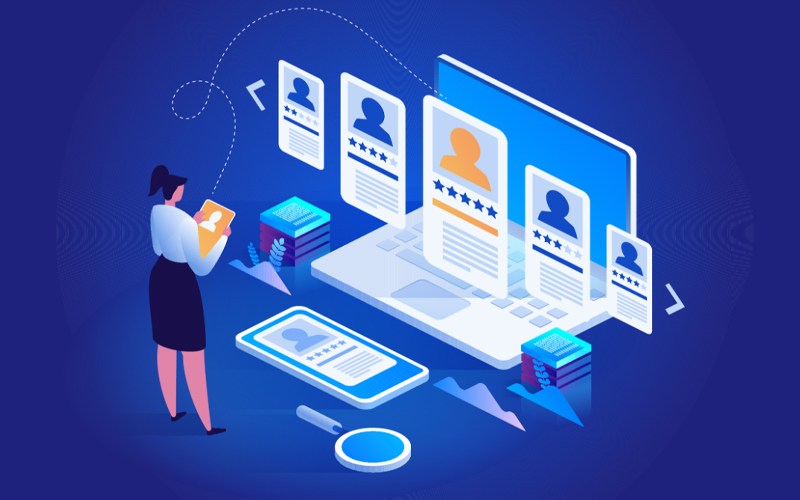In recent years, technology has transformed every aspect of the healthcare industry. In particular, healthcare solutions powered by Artificial Intelligence (AI) and Machine Learning (ML) stand to make huge strides in both diagnosis and patient care. While these solutions have far-reaching capabilities, their true success is also highly dependent on high-quality data. The COVID-19 pandemic has highlighted the importance of the requirement for efficient and rapid research for disease prevention and cure. Automatic prediction and detection of COVID-19 hotspots, predicting patient inflow, and timely supply of drugs and medical care equipment via automated supply chains, are critical factors for the healthcare industry. One of the crucial aspects for data to be useful is that it should be accurately labelled and annotated. These data sets can be used to train ML models and be used in diverse AI/ML medical solutions ranging from clinical diagnostics to live operating procedures.
High-quality training data enables AI applications to function as they were intended - with minimal human intervention. Clinicians can make accurate and consistent data-driven decisions in real time. This leads to improved quality of healthcare, with time and cost savings. Healthcare professionals can focus on patient care and interpreting the results, resulting in improved efficiency and productivity. With data-driven healthcare, there are fewer discrepancies in insurance claims and fewer quality and compliance-related issues. Better quality of healthcare results in increased healthcare customer satisfaction.
How conversational data annotation can improve healthcare?
Globally, the data annotation tools market is expected to grow at a Compound Annual Growth Rate (CAGR) of 26.5 per cent between 2023 and 2030, driven significantly by the adoption of conversational data annotation tools. The healthcare industry is one of the major contributors to this growth. Healthcare enterprises have realised the value of data annotation.
Clinical intelligence requires historical data, case study data as well as real-time data. Data annotation helps to convert unstructured data into structured data that can be used by ML algorithms. Data annotation involves manual or automated labelling of data to make it more meaningful or informative by extracting clinical information such as text files, documents, images, audio and video, and labelling it automatically or manually with expert data annotators or labellers. By adding metadata, segmentation, and classification to clinical data and medical images, conversational data annotation enhances data quality and streamlines datasets. ML algorithms can “read” and process this data to build context-sensitive training data sets that are highly useful to medical solutions.
Data annotation can help create innovative solutions in healthcare*. When used in conjunction with AI-based diagnostic software, digital imaging annotation is helpful in the accurate and quick diagnosis of diseases such as cancers and tumours. Undoubtedly, clinicians have the final say in diagnosis, but the analysis done by the software can aid in confirming a diagnosis. When expert data annotators tag digital radiology reports such as MRIs, CT scans and X-rays and thermal image scans, AI-powered diagnostic software can be used to diagnose conditions, and clinicians can use it to detect any possibly-missed anomalies, fine fractures, predict neurological conditions and diagnose musculoskeletal disorders. Furthermore, the trained models can be used to predict the spread of cancer and enable early detection. When medical images are annotated with the right tags, they can be of invaluable use during robotic surgery and minimally-invasive procedures. AI-based solutions that are trained on historical data can flag any anomalies in the current procedure in real-time.
Data annotation has vast applications in the pharmaceuticals sector as well, both for drug development and discovery. Annotations on Natural Language Processing (NLP) data such as written text, prescriptions, audio, digital text, medical and research journals, and data from electronic health records (EHR), claims processing, wearable devices etc. can be used by intelligent pharmaceutical solutions. These can help speed up drug trials, and conduct more testing, or drug approvals.
Virtual medical assistants can help patients set up appointments, check on symptoms, and even monitor their condition. Data annotation can help with AI-based conversational medical assistants by annotating conversations to refine interactions with patients. This is proving to be a huge boon to an already overburdened medical system. Interactive medical chatbots can perform a variety of functions such as finding location-based healthcare services, facilitating user registration and scheduling appointments, 24x7 user support, collecting feedback and maintaining medical data amongst other things.
AI and ML-based solutions are set to drive massive transformation across medical enterprises, hospitals, the pharmaceutical sector, medical insurance and clinical research. The adoption of specialist data annotation solutions by the healthcare industry will ultimately result in improved patient outcomes.
*For organizations on the digital transformation journey, agility is key in responding to a rapidly changing technology and business landscape. Now more than ever, it is crucial to deliver and exceed on organizational expectations with a robust digital mindset backed by innovation. Enabling businesses to sense, learn, respond, and evolve like a living organism, will be imperative for business excellence going forward. A comprehensive, yet modular suite of services is doing exactly that. Equipping organizations with intuitive decision-making automatically at scale, actionable insights based on real-time solutions, anytime/anywhere experience, and in-depth data visibility across functions leading to hyper-productivity, Live Enterprise is building connected organizations that are innovating collaboratively for the future.







